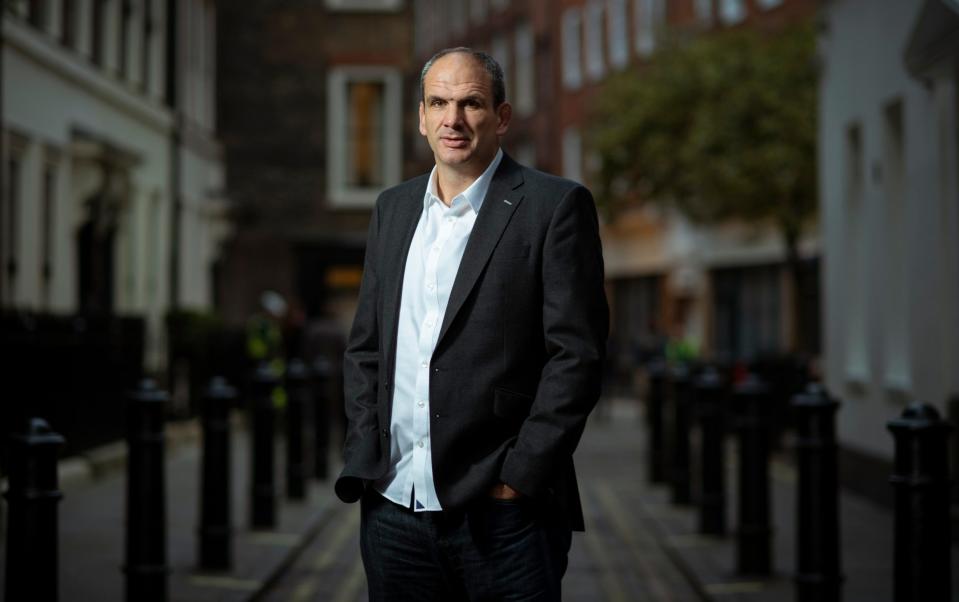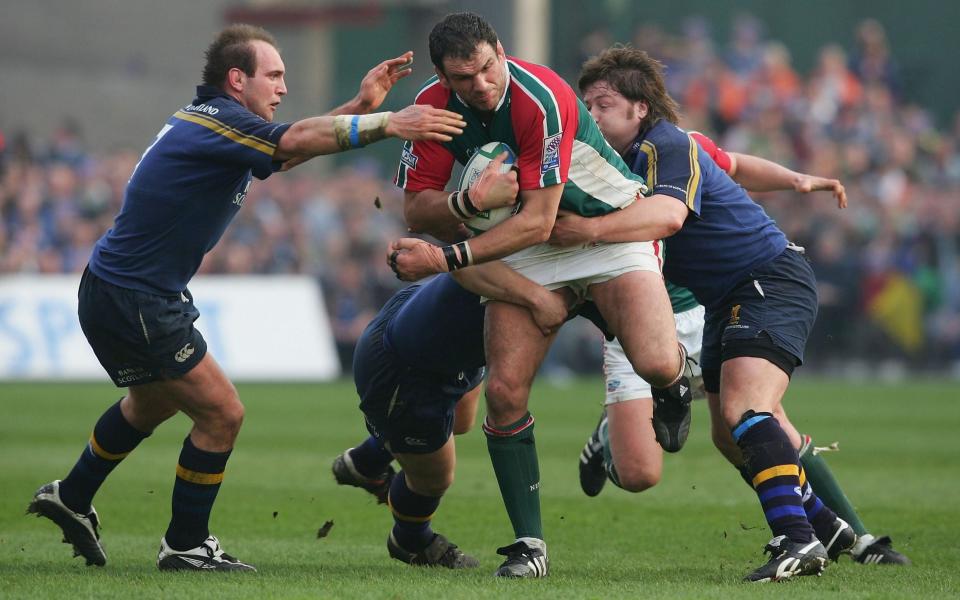Martin Johnson interview: 'Tackling needs teaching - not training could be more unsafe'

Martin Johnson, the former England manager and World Cup-winning captain, insists that improving tackle technique of players, from school level to the international stage, is critical in the battle to reduce the risk of head injuries in rugby union.
Johnson’s former team-mate Steve Thompson last month revealed he would pledge his brain to the Concussion Legacy Project, an initiative that is researching chronic traumatic encephalopathy (CTE) and other consequences of brain trauma in athletes.
Thompson was diagnosed with dementia last December at the age of 42 and says he has no memories of beating Australia in the final in Sydney in 2003.
World Rugby have attempted to reduce the risk of head injuries by lowering the height of the tackle and last month published guidelines to limit the amount of contact training through the week to just 15 minutes.
Johnson, who on Monday launched a new campaign calling for mandated sudden cardiac arrest training for people involved in the delivery of sport, however insisted the key to reducing head injuries was eradicating poor tackling technique.
“I'm not totally convinced with the high tackle thing – high tackling has always been illegal in rugby, it’s never been allowed,” said Johnson.
“My experience of it is that actually bad tackle technique is more likely to lead to concussion receiving a high tackle. I get that people are trying to do whatever they can, I understand that and we need to make it as safe as we can.
“But these things have always been taught. Head safety was always the first thing you learn - where to put your head when you tackle. And you've just got to keep hammering away at that.”
Rather than focus on blanket restrictions on contact, Johnson says emphasis should be on ‘fundamental techniques’ to reduce the injury risk.
“I say it to kids all the time” he added. “The basics are everything because without them you have nothing. At the highest level, what gets stressed is your fundamentals – under pressure, under speed, under duress.
“I remember Dylan Hartley getting a head knock in the England versus France game – it was a terrible tackle technique. When you saw it, it was classic head-down tackle technique.
“Fifteen minutes training or not, that was bad technique. And we've all done it. So you've got to be sensible and balanced. I'm not saying we should be training for hours, no-one does that. But training is there to prepare the body. I think you have to practice contact because it makes you better at it and makes your body more used to it.
“You have to practice your timing. To not do anything and think about it makes you safe… I think there's a chance that you're more unsafe because you haven't done it.”

With figures revealing that 12 people under the age of 35 die every week of sudden cardiac arrest (SCA), Johnson’s awareness campaign is urging people to access a free training course, which has been created collaboratively and will equip people with the knowledge and skills to act when faced with such an emergency.
Johnson is patron of the Joe Humphries Memorial Trust, a charity set up after the tragic death from SCA of a 14 year-old son of a close friend while he was out jogging with a friend in 2012.
Johnson said that if effective action was taken within the first minute of an arrest, it can treble changes of survival.
“Joe went out for a run and never came home,” Johnson added. “He had no symptoms but had a cardiac arrest, similar to what happened to Christian Eriksen (the Danish footballer who collapsed during a European Championship match in June)
“Unfortunately for Joe, he wasn't in a stadium watched by thousands of millions on TV and medical teams, who were on hand very quickly. So in light of the aim of the trust is to raise awareness because it's not a freak occurrence.
“They talk about 12 people a week dying between the ages 14 and 35, which is a shocking number. So it can happen, and if you know it can happen you just need to be aware of it and you need to be prepared for it, which is without learning CPR.”
Johnson also highlighted the importance of defibrillators in sports venues and training to use them.
“If you can't help, the chances of survival diminish rapidly. But if you can administer CPR and get hold of a defibrillator quickly, the chances of survival increase again rapidly.
“So the simple message is, these things can happen, and you need to be prepared for it. You need to learn CPR. And we need defibrillators at sporting venues. We need defibrillators in the community.”
UK Coaching offers a free eLearning course to provide the knowledge and confidence to respond quickly and appropriately in the event of sudden cardiac arrest. The toolkit, funded by Sport England, has been created by UK Coaching, Resuscitation Council UK, St John Ambulance and the Joe Humphries Memorial Trust. The course is available at www.ukcoaching.org/sca.

 Yahoo Sport
Yahoo Sport 





































